In the ever-evolving world of skincare, few ingredients have captured the attention of both consumers and industry experts like retinol peptides. As we step into 2025, the buzz around these potent compounds continues to grow, driven by their remarkable efficacy and the increasing demand for innovative anti-aging solutions. This article delves into the rising popularity of retinol peptides, exploring their market potential and the social media trends that are shaping their future.
Table of Contents:
– Understanding Retinol Peptide: The New Skincare Powerhouse
– Exploring Popular Retinol Peptide Product Types
– Addressing Consumer Pain Points with Retinol Peptide Solutions
– Innovations and New Products in the Retinol Peptide Market
– Wrapping Up: The Impact of Retinol Peptide on the Beauty Industry
Understanding Retinol Peptide: The New Skincare Powerhouse
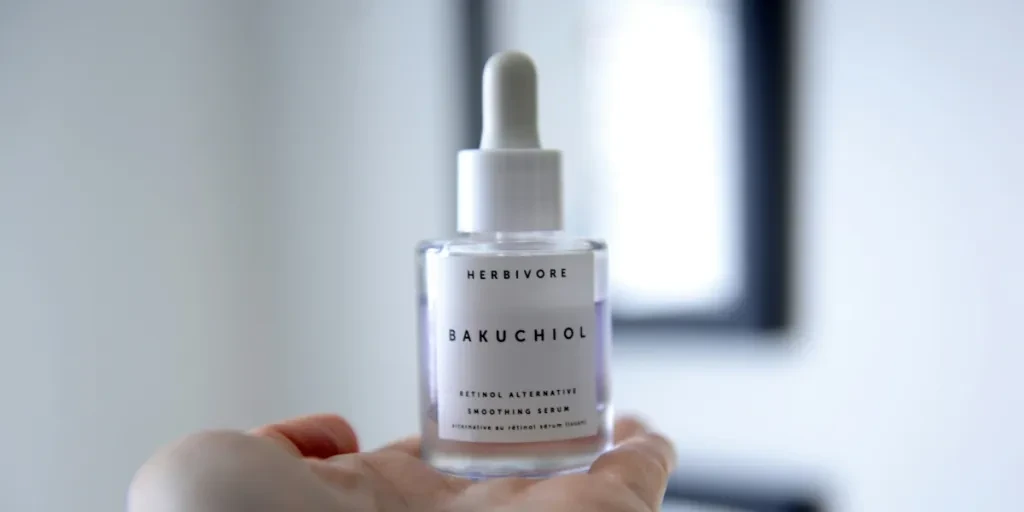
What is Retinol Peptide and Why It’s Gaining Popularity
Retinol peptides are a fusion of retinol, a derivative of vitamin A known for its anti-aging properties, and peptides, short chains of amino acids that serve as building blocks for proteins like collagen and elastin. This combination offers a powerful solution for reducing wrinkles, improving skin texture, and promoting a youthful appearance. The unique synergy between retinol and peptides enhances their individual benefits, making retinol peptides a sought-after ingredient in the skincare industry.
The growing popularity of retinol peptides can be attributed to their proven effectiveness in addressing multiple signs of aging. According to recent studies, the global retinol skincare product market is expected to grow by USD 144.64 million from 2022 to 2027, with a compound annual growth rate (CAGR) of 4%. This growth is driven by increasing product premiumization, new product launches, and a heightened focus on multichannel marketing strategies.
Social Media Buzz: Trending Hashtags and Influencer Endorsements
In the digital age, social media plays a pivotal role in shaping consumer preferences and driving product trends. Retinol peptides have become a hot topic on platforms like Instagram and TikTok, where beauty influencers and skincare enthusiasts share their experiences and results. Hashtags such as #RetinolPeptides, #YouthfulSkin, and #AntiAgingRevolution are gaining traction, reflecting the widespread interest in these products.
Influencer endorsements have significantly contributed to the popularity of retinol peptides. High-profile beauty influencers and dermatologists often highlight the benefits of incorporating retinol peptides into skincare routines, further boosting consumer confidence and interest. This social media buzz not only raises awareness but also drives demand, as consumers are more likely to try products recommended by trusted voices in the beauty community.
Market Potential: Demand Growth and Consumer Interest
The market potential for retinol peptides is immense, with several factors contributing to their rising demand. One of the key drivers is the increasing consumer awareness of the importance of skincare and the desire for effective anti-aging solutions. As the global population ages, the demand for products that can address wrinkles, fine lines, and other signs of aging is expected to grow.
Additionally, the trend towards premiumization in the skincare industry is fueling the demand for high-quality, effective ingredients like retinol peptides. Consumers are willing to invest in products that deliver visible results, and retinol peptides fit the bill perfectly. The market is also witnessing a surge in new product launches and innovations, with brands continuously exploring new formulations and delivery systems to enhance the efficacy of retinol peptides.
Geographically, the demand for retinol peptides is strong across various regions, including North America, Europe, and the Asia Pacific. In North America, the high consumer spending power and growing emphasis on appearance and wellness are driving market growth. Europe, with its stringent regulations and premium skincare market, also presents significant opportunities. Meanwhile, the Asia Pacific region is emerging as a lucrative market, driven by innovations in beauty and skincare and a preference for natural and organic ingredients.
In conclusion, the future of retinol peptides in the skincare industry looks promising. With their proven efficacy, growing social media presence, and increasing consumer interest, retinol peptides are set to become a staple in anti-aging skincare routines worldwide. As brands continue to innovate and explore new ways to harness the power of retinol peptides, the market is poised for substantial growth in the coming years.
Exploring Popular Retinol Peptide Product Types
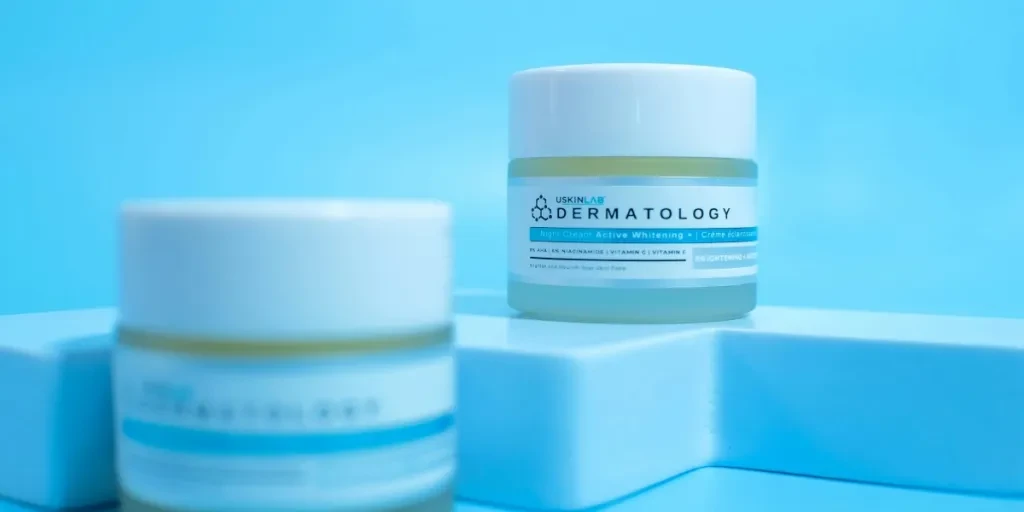
Serums: Concentrated Formulas for Maximum Impact
Serums are a cornerstone in the retinol peptide product category, renowned for their concentrated formulas that deliver potent results. These products are designed to penetrate deeply into the skin, providing maximum impact with minimal application. For business buyers, the key considerations when selecting retinol peptide serums include ingredient stability, formulation efficacy, and packaging innovations. According to a report by TrendsHunter, HH Science’s Retinol Forte Plus Smoothing Serum exemplifies this category with its patent-pending Micropolymer Delivery System, which stabilizes and delivers retinol effectively while minimizing irritation. This advanced delivery system ensures that the active ingredients remain potent and effective throughout the product’s shelf life, a critical factor for maintaining consumer trust and satisfaction.
Moreover, serums like the Retinol Forte Plus Smoothing Serum often include additional beneficial ingredients such as green tea polyphenols, hyaluronic acid, and caffeine. These components not only enhance the anti-aging effects but also provide soothing and hydrating benefits, addressing common consumer concerns about retinol-induced dryness and irritation. For business buyers, sourcing serums that combine multiple active agents can offer a competitive edge, as these products cater to a broader range of skincare needs and preferences.
Creams and Lotions: Balancing Efficacy with Moisturization
Creams and lotions are another popular category within the retinol peptide market, offering a balance between efficacy and moisturization. These products are particularly appealing to consumers who seek the anti-aging benefits of retinol without compromising on hydration. Neutrogena’s Rapid Wrinkle Repair® Regenerating Cream, for instance, combines Accelerated Retinol SA with hyaluronic acid to deliver a rich moisturizing experience while effectively targeting deep wrinkles and dark spots. This dual-action approach ensures that the skin remains hydrated and plump, reducing the likelihood of irritation and dryness commonly associated with retinol use.
For business buyers, it is essential to consider the formulation’s ability to maintain stability and efficacy over time. Products like Advanced Clinicals’ Anti-Aging Face & Body Cream, which incorporates natural ingredients such as green tea, aloe vera, and chamomile, demonstrate the potential for combining retinol with botanical extracts to enhance skin health and appearance. These formulations not only appeal to consumers looking for natural and gentle skincare solutions but also align with the growing trend towards clean and sustainable beauty products.
Eye Treatments: Targeting Fine Lines and Dark Circles
Eye treatments represent a specialized segment within the retinol peptide market, focusing on the delicate skin around the eyes. These products are formulated to address specific concerns such as fine lines, wrinkles, and dark circles. First Aid Beauty’s Retinol Eye Cream with Squalane + Ceramides is a prime example, offering gentle yet powerful eye care that improves firmness and hydration without causing irritation. The inclusion of squalane and ceramides helps to strengthen the skin’s moisture barrier, providing long-lasting hydration and protection.
For business buyers, the formulation of eye treatments must prioritize gentle yet effective ingredients to cater to the sensitive nature of the eye area. Products that incorporate slow-release retinol, like Peace Out’s Retinol Eye Lift Patches, can provide sustained anti-aging benefits while minimizing the risk of irritation. Additionally, innovative packaging solutions that ensure product stability and ease of application, such as massaging applicators, can enhance the consumer experience and drive repeat purchases.
Addressing Consumer Pain Points with Retinol Peptide Solutions
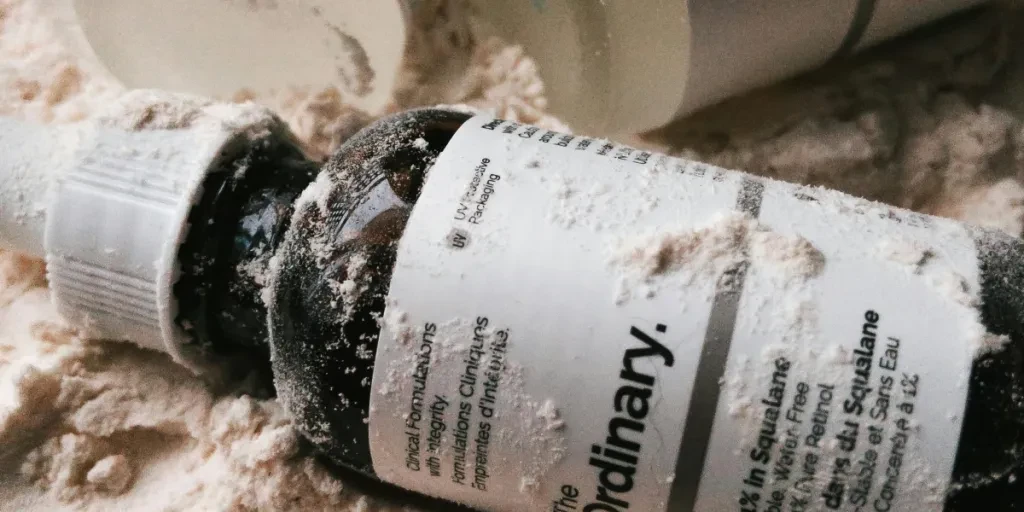
Sensitivity and Irritation: Formulations for Gentle Care
One of the primary concerns consumers have with retinol products is the potential for sensitivity and irritation. To address this, many brands are developing formulations that offer the benefits of retinol while minimizing adverse effects. First Aid Beauty’s 0.3% Retinol Complex Serum with Peptides is a notable example, with 100% of users reporting minimal to no redness after use. This product combines retinol with peptides to enhance skin firmness and reduce fine lines, while also incorporating ingredients that strengthen the skin’s moisture barrier.
For business buyers, sourcing products that prioritize gentle formulations can significantly enhance consumer satisfaction and loyalty. The inclusion of soothing agents such as green tea polyphenols, hyaluronic acid, and squalane can help mitigate the drying effects of retinol, making these products suitable for a wider range of skin types, including sensitive skin.
Combining Retinol Peptide with Other Ingredients for Enhanced Results
Combining retinol peptides with other active ingredients can enhance the overall efficacy of skincare products. For instance, HH Science’s Retinol Forte Plus Smoothing Serum includes green tea polyphenols for their antioxidant properties, hyaluronic acid for hydration, and caffeine to reduce redness and energize the skin. This multi-component approach addresses various skin concerns simultaneously, providing a comprehensive anti-aging solution.
Business buyers should look for formulations that leverage the synergistic effects of multiple ingredients to offer superior results. Products that combine retinol with peptides, antioxidants, and hydrating agents can cater to consumers seeking holistic skincare solutions that address multiple concerns, such as aging, dryness, and uneven skin tone.
Packaging Innovations: Ensuring Product Stability and Efficacy
Packaging plays a crucial role in maintaining the stability and efficacy of retinol peptide products. Innovative packaging solutions, such as airless pumps and opaque containers, can protect sensitive ingredients from exposure to light and air, which can degrade their potency. For example, Medik8’s Crystal Retinal 24 utilizes encapsulated retinaldehyde, a next-generation vitamin A molecule, in a formulation that includes hyaluronic acid and glycerin to ensure moisture retention and stability.
For business buyers, selecting products with advanced packaging technologies can enhance the shelf life and effectiveness of retinol peptide formulations. Ensuring that the packaging is user-friendly and aesthetically pleasing can also improve the consumer experience, encouraging repeat purchases and brand loyalty.
Innovations and New Products in the Retinol Peptide Market
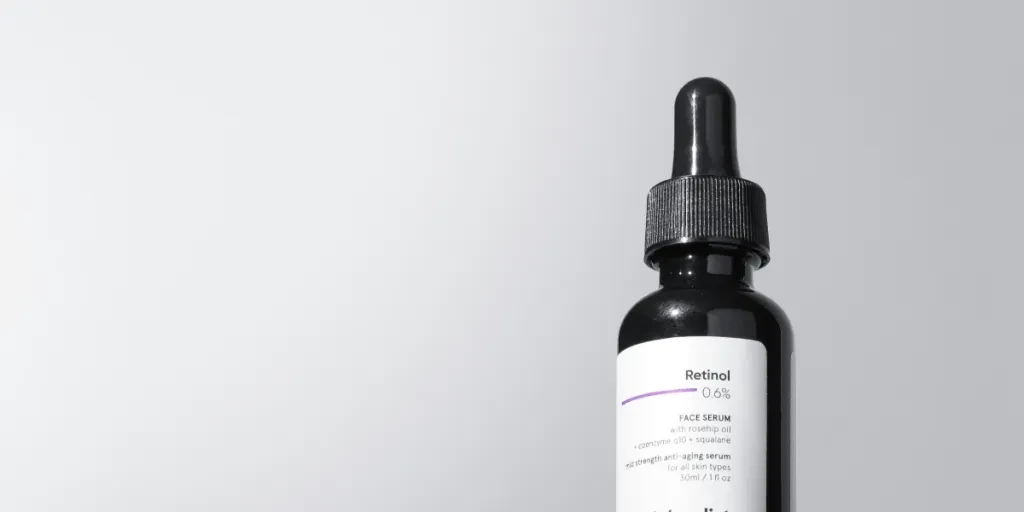
Breakthrough Formulations: What’s New and Exciting
The retinol peptide market is continually evolving, with new and exciting formulations emerging to meet consumer demands. One such innovation is the use of encapsulated retinoid technology, as seen in Go-To’s Very Amazing Retinal serum. This product combines encapsulated retinol with niacinamide and peptides to reduce irritation and enhance skin barrier function. The encapsulation technology allows for a controlled release of retinol, providing effective anti-aging benefits while minimizing the risk of irritation.
For business buyers, staying abreast of these innovations can provide a competitive edge. Products that incorporate advanced delivery systems and novel ingredient combinations can offer superior performance and appeal to consumers seeking the latest in skincare technology.
Sustainable and Ethical Sourcing: Meeting Consumer Expectations
Sustainability and ethical sourcing are becoming increasingly important to consumers, and the retinol peptide market is no exception. Brands like Bonjou Beauty are leading the way with products like Rejuvinol, an organic retinol serum that uses Babchi Oil, a natural alternative to retinol. This product is crafted with certified organic ingredients and produced in small batches, emphasizing sustainability and clean formulations.
For business buyers, sourcing products that align with these values can enhance brand reputation and appeal to environmentally conscious consumers. Ensuring that ingredients are sustainably sourced and that production practices are ethical can also contribute to long-term business success.
Future Trends: Predicting the Next Big Thing in Skincare
Looking ahead, the retinol peptide market is poised for continued innovation and growth. Trends such as the integration of biotechnology in skincare formulations, the rise of personalized beauty solutions, and the increasing demand for multifunctional products are likely to shape the future of this market. For instance, Neutrogena’s Collagen Bank Moisturizer with micro-peptide technology addresses pre-aging concerns and offers deep skin penetration for enhanced efficacy.
For business buyers, staying informed about these trends and incorporating them into product offerings can ensure continued relevance and competitiveness in the market. Embracing new technologies and consumer preferences can drive innovation and open up new opportunities for growth.
Wrapping Up: The Impact of Retinol Peptide on the Beauty Industry
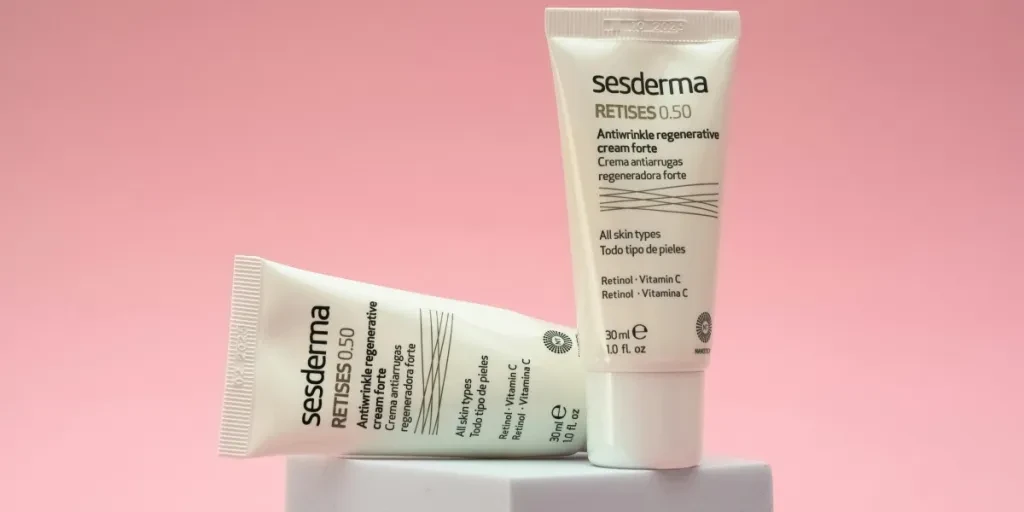
In conclusion, the retinol peptide market is a dynamic and rapidly evolving segment of the beauty industry. With advancements in formulation technologies, a focus on gentle and effective ingredients, and a commitment to sustainability, retinol peptide products are set to continue their growth trajectory. For business buyers, understanding these trends and sourcing innovative, high-quality products can drive success and meet the ever-changing demands of consumers.




